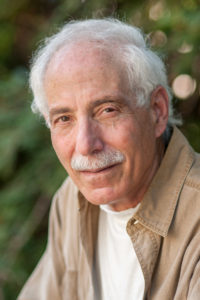Susan Bernofsky's Blog, page 22
August 12, 2017
2017 PEN USA Translation Award Shortlist Announced
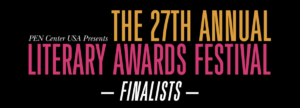 This week, PEN USA announced the shortlists for its literary awards, and unlike one of the prize categories this year, the Translation shortlist is refreshingly free of scandal, even containing 50% books by female authors, a pleasing statistic, especially given that it’s Women in Translation Month. The award comes with a $1000 purse.
This week, PEN USA announced the shortlists for its literary awards, and unlike one of the prize categories this year, the Translation shortlist is refreshingly free of scandal, even containing 50% books by female authors, a pleasing statistic, especially given that it’s Women in Translation Month. The award comes with a $1000 purse.
Here are the four shortlisted translators for the PEN USA Translation Award:
Kareem James Abu-Zeid for Confessions by Rabee Jaber (New Directions)
Philip Boehm for The Fox Was Ever The Hunter by Herta Müller (Metropolitan)
Geoffrey Brock for Six Memos For The Next Millennium by Italo Calvino (Houghton Mifflin Harcourt)
Jordan Stump for Cockroaches by Scholastique Mukasonga (Archipelago)
The winner will be announced in early September, followed by a prize ceremony in Beverly Hills in October. Congratulations and best of luck to all four shortlisted translators!
The post 2017 PEN USA Translation Award Shortlist Announced appeared first on TRANSLATIONiSTA.
August 7, 2017
2017 National Translation Award Shortlists Announced
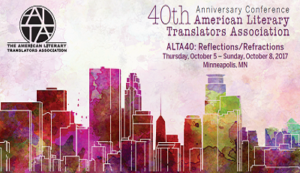 The American Literary Translators Association has just announced the shortlists for its 2017 National Translation Awards in Poetry and Prose. The winners of both awards will be announced this October at the 40th anniversary ALTA conference in Minneapolis. I’m delighted to see smaller publishers so well-represented on this list. Special congratulations to co•im•press and NYRB Classics, with two books each on these lists.
The American Literary Translators Association has just announced the shortlists for its 2017 National Translation Awards in Poetry and Prose. The winners of both awards will be announced this October at the 40th anniversary ALTA conference in Minneapolis. I’m delighted to see smaller publishers so well-represented on this list. Special congratulations to co•im•press and NYRB Classics, with two books each on these lists.
2017 NTA Shortlist in Poetry
Berlin • Hamlet
by Szilárd Borbély
translated from the Hungarian by Ottilie Mulzet
(New York Review of Books)
Canto General
by Pablo Neruda
translated from the Spanish by Mariela Griffor
(Tupelo Press)
The End of the Dark Era
by Tseveendorjin Oidov
translated from the Mongolian by Simon Wickhamsmith
(Phoneme Media)
tasks
by Víctor Rodríguez Núñez
translated from the Spanish by Katherine Hedeen
(co•im•press)
Valdivia
by Galo Ghigliotto
translated from the Spanish by Daniel Borzutsky
(co•im•press)
2017 NTA Shortlist in Prose
I am Behind You
by John Ajvide Lindqvist
translated from the Swedish by Marlaine Delargy
(Text Publishing)
No Knives in the Kitchens of This City
by Khaled Khalifa
translated from the Arabic by Leri Price
(American University of Cairo Press)
The Party Wall
by Catherine Leroux
translated from the French by Lazer Lederhendler
(Biblioasis)
A Whole Life
by Robert Seethaler
translated from the German by Charlotte Collins
(Farrar, Straus, and Giroux)
Zama
by Antonio di Benedetto
translated from the Spanish by Esther Allen
(New York Review of Books)
You’ll find more information about the shortlisted books on the ALTA blog. Wishing best of luck to all the finalists!
The post 2017 National Translation Award Shortlists Announced appeared first on TRANSLATIONiSTA.
August 1, 2017
Katy Derbyshire on Women in Translation Month
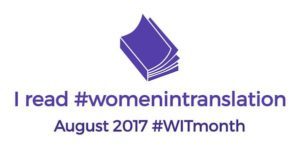 As you probably already know, Katy Derbyshire is one of the literary translators working hardest to make sure that we can have nice things. She’s just written up an excellent account of what Women in Translation Month is all about. Here’s a taste:
As you probably already know, Katy Derbyshire is one of the literary translators working hardest to make sure that we can have nice things. She’s just written up an excellent account of what Women in Translation Month is all about. Here’s a taste:
Only a tiny fraction of fiction published in English is translated, and only about a quarter of that translated fiction was originally written by women. For some reason, fiction in translation by women remains as rare as black diamonds. And yet there are so many amazing women-authored books out there in the world – books we’re missing out on.
Women in Translation or WiT, is a global collaborative project to help remedy the discrepancy between the amount of works by women published in English translation, and how they are critically received. We think the publishing and reading community would benefit from translating more women. Remember what sparked the current boom in translated fiction? It was crime writing. Scandinavian detective stories made many readers overcome their reluctance to reach for anything genuinely foreign. Scandicrime broadened the audience for translated fiction. And now translated fiction written by women is poised to do the same. And not just Elena Ferrante – who has gathered a fan base of readers addicted to her stories of female friendship, as translated by Ann Goldstein. But also translated genre fiction of all kinds. Last February, the number 1 on Amazon’s US list of bestselling historical romance books was German novelist Corina Bomann’s The Moonlit Garden (trans. Alison Layland). That certainly suggests a lot of potential readers for translated fiction.
From literary fiction like Japanese-German Yoko Tawada’s new novel Memoirs of a Polar Bear (trans. Susan Bernofsky) to non-fiction like Nobel laureate Svetlana Alexievich’s Second-hand Time (trans. Bela Sheyavich) or graphic novels like Marjane Satrapi’s best-selling Persepolis (trans. Blake Ferris and Mattias Ripa), or genre writing like that of Argentinian writer Angélica Gorodischer (trans. Ursula K. LeGuin, Amalia Gladhart and Sue Burke), women writers in translation are primed to impress and enthrall readers of all kinds of books… WiT is all about making them more visible, and more plentiful in turn…
For the rest of her post, including a Q&A section and suggestions of how to get involved, please visit the Women in Translation website. And note that I’m keeping a running tab of Women in Translation events around the world – please send me yours for inclusion!
The post Katy Derbyshire on Women in Translation Month appeared first on TRANSLATIONiSTA.
July 27, 2017
Women in Translation Month 2017
 August is Women in Translation Month, and this post is to let you know how it’s being celebrated around the English-speaking world. Please send me events and posts you hear about so I can add them to this post all month long.
August is Women in Translation Month, and this post is to let you know how it’s being celebrated around the English-speaking world. Please send me events and posts you hear about so I can add them to this post all month long.
One important resource for anyone interested in following #WomenInTranslation is the website Women in Translation, which posts relevant announcements and resources, including the list of books currently being considered for the inaugural Warwick Prize to honor a work in English translation by a woman author. Women in Translation also just reposted those great LitHub lists from last year of previously untranslated women authors whose work ought to be translated. You can also follow Women in Translation on Twitter: @Read_WIT for ongoing recommendations of great new books by women authors.
Women in Translation Month was summoned into being in 2014 by literary blogger Meytal Radzinski (a.k.a. Biblibio), who quickly found many fellow enthusiasts of international literature eager to help her carry the torch.
And here are some events I’ve been hearing about. Send me more!
Aug. 2: DUBLIN: A Celebration of Women in Translation Month (co-sponsored by the Goethe-Institut Irland) at Dublin’s Hodges Figgis Bookshop with Siobhán Parkinson, Peter Fallon, and Rachel McNicholl.
Aug. 5: NEW YORK (Manhattan): Women in Translation Cocktail Hour at Book Culture Bookstore with Ann Goldstein, John Keene, Nathan Xavier Osorio, and Susan Bernofsky.
Aug. 17: NEW YORK (Brooklyn): Women in Translation Month Reading and Discussion (co-sponsored by the PEN America Translation Committee) at Word Bookstore with Bonnie Huie, Elisabeth Jaquette, Julia Sanches, and Madhu Kaza.
The post Women in Translation Month 2017 appeared first on TRANSLATIONiSTA.
Translation on Tap in NYC, Aug. 1 – 31, 2017
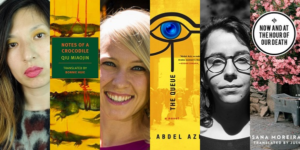 August is Women in Translation Month, and I hope you’ll spend these sultry weeks reading some fabulous translated books by women authors. Of course, all year round is the perfect time to read #WomenInTranslation, but the designated month is a great opportunity to remind yourself of all the amazing women writing all over the world whose books have been translated into English for your reading pleasure. Please tweet your reads to me at @translationista with the hashtags #WomenInTranslation or #WITMonth. And if you’re in NYC, maybe you’ll show up to one of the Women in Translation Month events being planned around the city. I’ll update as more information comes in. Here’s what I’ve got so far:
August is Women in Translation Month, and I hope you’ll spend these sultry weeks reading some fabulous translated books by women authors. Of course, all year round is the perfect time to read #WomenInTranslation, but the designated month is a great opportunity to remind yourself of all the amazing women writing all over the world whose books have been translated into English for your reading pleasure. Please tweet your reads to me at @translationista with the hashtags #WomenInTranslation or #WITMonth. And if you’re in NYC, maybe you’ll show up to one of the Women in Translation Month events being planned around the city. I’ll update as more information comes in. Here’s what I’ve got so far:
Friday, Aug. 5:
Women in Translation Cocktail Hour, featuring readings by translators (and translator-authors) Ann Goldstein, John Keene, and Nathan Xavier Osorio, moderated by Translationista. (I was thrilled my local bookstore was so excited about hosting a WITMonth event; last year they even put up a Women in Translation themed window display.) More information here. Book Culture, 536 W. 112th St., 6:00 p.m.
Thursday, Aug. 17:
Women in Translation Month Reading and Discussion hosted by the PEN Translation Committee and featuring translators Bonnie Huie, Elisabeth Jaquette, and Julia Sanches, moderated by translator (and writer) Madhu Kaza. More information here. Word, 126 Franklin St., Brooklyn, 7:00 p.m.
The post Translation on Tap in NYC, Aug. 1 – 31, 2017 appeared first on TRANSLATIONiSTA.
July 26, 2017
Remembering John Felstiner
Last February, translator, author, and scholar John Felstiner passed away at the age of 80. Aviya Kushner wrote these words in his memory:
I found John Felstiner’s translations of Paul Celan’s poetry at the bottom of a bonus box of books sent to me to review. At the time, I had a wonderful editor who mailed me a monthly box containing all the new poetry books published in this country. Occasionally, he sent me a bonus—all the translations he could get his hands on, or biographies of poets, or books that made him think of me, like a coveted review copy of Nathan Englander’s For the Relief of Unbearable Urges. Slogging through dozens of those books, I learned how much dull and unreadable work there is in the world—and in that particularly challenging month, when I encountered absolutely nothing I wanted to review, I was down to the very last two books in the bonus box.
I remember fanning myself with a piece of paper in my unairconditioned apartment in Somerville, Massachusetts, and hoping for something decent. The other remaining book turned out to be a biography of Celan titled Poet, Survivor, Jew, and it was also written by Felstiner. I knew within a few pages that I would reread both books throughout my entire life.
Felstiner’s obsession with Celan was deep, dogged, personal. The two books weren’t just decent or worthy of review—they were essential. Celan’s need to witness and to scream had found a parallel spirit in Felstiner, who as both translator and biographer, did not want that scream to go quiet into the night.
With Felstiner as my guide, I read about how Celan, born in Romania and haunted by all he had seen, insisted on writing his poetry of witness in German—at a time when millions of Jews refused to speak German, hear German music, or even buy German products. Celan’s very individual decision to become a great poet in German, of all tongues, was matched by the passion of his most unique translator into English, who would stop at nothing to make Celan heard—and would even turn to including German in his English translations, if that’s what it took to translate Celan. And when Felstiner, who taught both English literature and Jewish studies, encountered Hebrew words or references to Jewish text and thought in Celan’s work or papers, he translated those elements, too.
But all this was only half of Felstiner’s project. I think it’s important to remember John Felstiner as a prose writer, not just as a translator. In the annals of great prefaces to translations, and great biographies of writers by translators, Felstiner’s lifelong commitment to Celan deserves a hefty chapter. I will never forget reading about how Felstiner befriended the poet’s wife, Gisèle, convincing her to let him look through Celan’s library. He comes across a well-read copy of the Tanach, the Hebrew Bible. But once when he’s leafing through books in the middle of the night, Gisèle comes into the room, looks at the volume in his hands, and says ‘no.’
Because Felstiner had a background in both English literature and Jewish studies, he could put Celan’s work in context for the English-speaking reader, catching references to Jewish text and thought, and translating the Hebrew words he comes across Hebrew words in the margins; he transmits that to the reader too.
Felstiner is best known for his translation of Celan’s “Todesfugue” or “Deathfugue,” arguably the most famous poem of the Holocaust. (The other contender, in my mind, is “In A Sealed Railway Car” by Dan Pagis, the great Hebrew poet and scholar of medieval Hebrew literature.) In “Deathfugue,” which begins with the unforgettable lines “Black milk of daybreak we drink it at evening / we drink it at midday and morning we drink it at night / we drink and we drink,” Felstiner leaves some words in German in his translation. This decision brings the reader in, including the reader in Celan’s experience, and when I have taught this poem, it is the elements students seem to notice most often.
But my favorite Felstiner translation is a less dramatic poem, but one that feels gentle and urgent— like Felstiner’s overall approach to both translating Celan and writing his biography. The poem is “Count Up the Almonds” and Felstiner renders its opening like this:
Count up the almonds,
count what was bitter and kept you waking,
count me in too:
I always return to those lines, especially the second line—“count what was bitter and kept you waking.” What Felstiner did, with his decades-long Celan obsession, was count English readers, in, too—letting us feel not only what kept Celan waking, but what kept his wife waking, and what it felt like to wake up in Celan’s home, in the middle of the night.
And yet it must be said: Felstiner was gracious. I received this impression from his writing, and it was exactly how he seemed in person, when I heard him speak about translation at Boston University and patiently answer dozens of student questions. He was singularly motivated to bring Celan into English, but he did not go where he was not allowed to go. When the poet’s wife said no, the translator-biographer obeyed—but he also told readers about it. In his translations and in his prose, Felstiner counted the reader in, remembering the reader always, along with the almonds.
—————–
Aviya Kushner is the author of The Grammar of God (Spiegel & Grau) and The Forward’s language columnist. She is an associate professor at Columbia College Chicago and a Howard Foundation fellow in nonfiction.
The post Remembering John Felstiner appeared first on TRANSLATIONiSTA.
July 10, 2017
2017 ALTA Travel Fellows Announced
 The American Literary Translators Association has just selected its new crop of ALTA Fellows for 2017, and it sounds like a really interesting group. I’m looking forward to hearing them present their work at the annual fellows’ reading at the conference. This year’s jury was comprised of Dick Cluster, Sara Novic, and Sebastian Schulman. Speaking of the conference, ALTA40: Reflections/Refractions (it’s ALTA’s 40th anniversary), it’s time to register if you can come. It’ll be held this October 5 – 8 in Minneapolis, MN.
The American Literary Translators Association has just selected its new crop of ALTA Fellows for 2017, and it sounds like a really interesting group. I’m looking forward to hearing them present their work at the annual fellows’ reading at the conference. This year’s jury was comprised of Dick Cluster, Sara Novic, and Sebastian Schulman. Speaking of the conference, ALTA40: Reflections/Refractions (it’s ALTA’s 40th anniversary), it’s time to register if you can come. It’ll be held this October 5 – 8 in Minneapolis, MN.
And here are the 2017 Fellows:
Aaron Coleman, 2017 Peter K. Jansen Memorial Travel Fellow (Spanish)
Aaron Coleman is the author of St. Trigger, which won the 2015 Button Poetry Prize, and Threat Come Close (Four Way Books, 2018). A Fulbright Scholar and Cave Canem Fellow, Aaron is currently a PhD student in Washington University in St. Louis’ Comparative Literature Program’s International Writers Track.
Bonnie Chau, 2017 ALTA Travel Fellow (Chinese and French)
Bonnie Chau has an MFA in fiction from Columbia University, with a concentration in translation, focusing on Chinese and French fiction. Her writing has appeared in Flaunt, Timber, Drunken Boat, Queen Mob’s Tea House, and other journals. A Kundiman fellow, she currently works at Poets & Writers in New York City.
Ellen Jones, 2017 ALTA Travel Fellow (Spanish)
Ellen Jones is Criticism Editor at Asymptote and a doctoral researcher at Queen Mary University of London. Her translations from Spanish into English have appeared or are forthcoming in the Guardian, Hotel, Palabras errantes, and Columbia Journal, and in Enrique Winter’s bilingual chapbook Suns (Cardboard House Press, 2017).
Zoë Sandford, 2017 ALTA Travel Fellow (Arabic and French)
Zoë Sandford was born in the US and moved to the UK at the age of eight. She holds a BA in French and Arabic from St John’s College, Oxford. Her original writing has appeared in The ISIS and Vulture.
Timea Sipos, 2017 ALTA Travel Fellow (Hungarian)
Timea Sipos is a Hungarian-American translator and writer currently earning her MFA in Fiction at the University of Nevada, Las Vegas. Her translation has appeared at The Short Story Project. She is in the process of translating Ilka Papp-Zakor’s short story collection and 2015 JAK Kendő Award winner, Angel Dinner.
David Smith, 2017 ALTA Travel Fellow (Norwegian)
David M. Smith is an Atlanta-based translator of Norwegian fiction. He holds a Master’s Degree in the Humanities from the University of Chicago. His work has appeared in Drunken Boat.
You’ll find more information about each of these translators on he ALTA website. Congratulations to all six!
The post 2017 ALTA Travel Fellows Announced appeared first on TRANSLATIONiSTA.
July 7, 2017
2017 PEN Translates Awards Announced
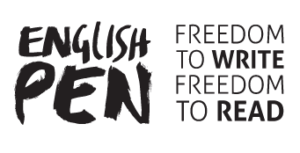 English PEN just announced its 2017 crop of PEN Translates awards, which help publishers pay the translation costs for the selected books. I’m delighted to have a book on the list this year (i.e. happy for my UK publisher Portobello/Granta). And especially happy that the list this year has more women authors on it than men. That’s got to be some sort of a first. Just in time for Women in Translation Month, coming up in August. With no further ado, behold the list:
English PEN just announced its 2017 crop of PEN Translates awards, which help publishers pay the translation costs for the selected books. I’m delighted to have a book on the list this year (i.e. happy for my UK publisher Portobello/Granta). And especially happy that the list this year has more women authors on it than men. That’s got to be some sort of a first. Just in time for Women in Translation Month, coming up in August. With no further ado, behold the list:
The Lime Tree by César Aira, translated from Spanish by Chris Andrews. Published by And Other Stories. November 2017
Blood Barrios: Dispatches from the World’s Deadliest Streets by Alberto Arce, translated from Spanish by Daniela Ugaz and John Washington. Published by ZED Books. February 2018
The Impostor by Javier Cercas, translated from Spanish by Frank Wynne. Published by Maclehose Press. November 2017
Go Went Gone by Jenny Erpenbeck, translated from German by Susan Bernofsky. Published by Granta Publications. September 2017
Three Plastic Rooms by Petra Hůlová, translated from Czech by Alex Zucker. Published by Jantar Publishing Limited. November 2017
The Land Drenched in Tears by Söyüngül Chanisheff, translated from Uyghur by Rahima Mahmut. Published by Hertfordshire Press. November 2017
Brother in Ice by Alicia Kopf, translated from Catalan by Mara Faye Lethem. Published by And Other Stories. April 2018
The Underground Village by Kang Kyeong-ae, translated from Korean by Anton Hur. Published by Honford Star. April 2018
Translation as Transhumance by Mireille Gansel, translated by Ros Schwartz. Published by Les Fugitives. November 2017
Narrative Poem by Yang Lian, translated from Chinese by Brian Holton. Published by Bloodaxe Books. June 2017
Our Story: A Memoir of Love and Life in China by Rao Pingru, translated from Chinese by Nicky Harman. Published by Square Peg. February 2018
The Sea Cloak by Nayrouz Qarmout, translated from Arabic by Perween Richards. Published by Comma Press. March 2018
A large Czesław Milosz with a dash of Elvis Presley by Tania Skarynkina, translated from Belarusian by Jim Dingley. Published by Scotland Street Press. February 2018
Freedom Hospital: A Syrian Story by Hamid Sulaiman, translated from French by Francesca Barrie. Published by Jonathan Cape. October 2017
Slav Sisters: The Dedalus Book of Russian Women Literature by Natasha Perova (ed.), translated from Russian by Robert Chandler, Ilona Chavasse, John Dewey, Boris Dralyuk, Andrew Bromfield English, Jamey Gambrell, Marian Schwartz, Arch Tait, Joanne Turnbull. Published by Dedalus Limited. January 2018
Can You Hear Me? by Elena Varvello, translated from Italian by Alex Valente. Published by Two Roads. July 2017
The Sea Migrations by Asha Lul Mohamud Yusuf, translated from Somali by Clare Pollard, Said Jama Hussein, Maxamed Xasan ‘Alto’. Published by Bloodaxe Books and The Poetry Translation Centre. October 2017
1947 by Elisabeth Åsbrink, translated from Swedish by Fiona Graham. Published by Scribe UK. November 2017
The post 2017 PEN Translates Awards Announced appeared first on TRANSLATIONiSTA.
July 1, 2017
Translator Named a 2017 Chevalier
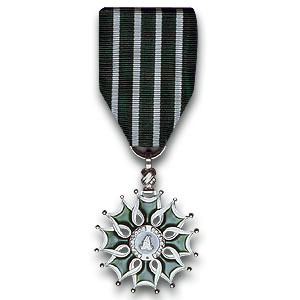 The French government knights people for making significant contributions to the arts in France and the world, and among this year’s freshly minted crop of Chevaliers is translator (and journalist, author, and literary critic) Liesl Schillinger, who was honored with the insignia of Chevalier of the Order of Arts and Letters by Bénédicte de Montlaur, Cultural Counselor of the French Embassy last week in New York. According to the French Consulate, “The Order of Arts and Letters (Ordre des Arts et des Lettres) was established in 1957 to recognize eminent artists and writers, as well as people who have contributed significantly to furthering the arts in France and throughout the world.” Other translators who have been singled out for this honor include Ros Schwartz, Esther Allen, Jeanine Herman, and Paul Auster (maybe not primarily for his work as a translator). Barbara Wright, legendary translator of Raymond Queneau, was honored in 2002 at the rank of Commandeur.
The French government knights people for making significant contributions to the arts in France and the world, and among this year’s freshly minted crop of Chevaliers is translator (and journalist, author, and literary critic) Liesl Schillinger, who was honored with the insignia of Chevalier of the Order of Arts and Letters by Bénédicte de Montlaur, Cultural Counselor of the French Embassy last week in New York. According to the French Consulate, “The Order of Arts and Letters (Ordre des Arts et des Lettres) was established in 1957 to recognize eminent artists and writers, as well as people who have contributed significantly to furthering the arts in France and throughout the world.” Other translators who have been singled out for this honor include Ros Schwartz, Esther Allen, Jeanine Herman, and Paul Auster (maybe not primarily for his work as a translator). Barbara Wright, legendary translator of Raymond Queneau, was honored in 2002 at the rank of Commandeur.
The post appeared first on TRANSLATIONiSTA.
June 29, 2017
Translation on Tap in NYC July 1 – 31, 2017
 It’s summer! Maybe you’re at the beach, but when you’re ready for a bit of literary R&R, here’s what’s on tap for you:
It’s summer! Maybe you’re at the beach, but when you’re ready for a bit of literary R&R, here’s what’s on tap for you:
Friday, July 14:
Us&Them: A Writer/Translator Reading Series. The Summer 2017 installment of this reading series featuring writers who are also translators reading both their own and translated work will present John Keene translating Hilda Hilst (Brazil); Bonnie Huie translating Qiu Miaojin (Taiwan); Alicia Maria Meier translating Bel Olid (Catalonia); and Liza St. James translating Fanny Ehnvall (Finland). Molasses Books, 770 Hart St. (Dekalb L), Brooklyn, 8:00 p.m.
The post Translation on Tap in NYC July 1 – 31, 2017 appeared first on TRANSLATIONiSTA.
Susan Bernofsky's Blog
- Susan Bernofsky's profile
- 62 followers


